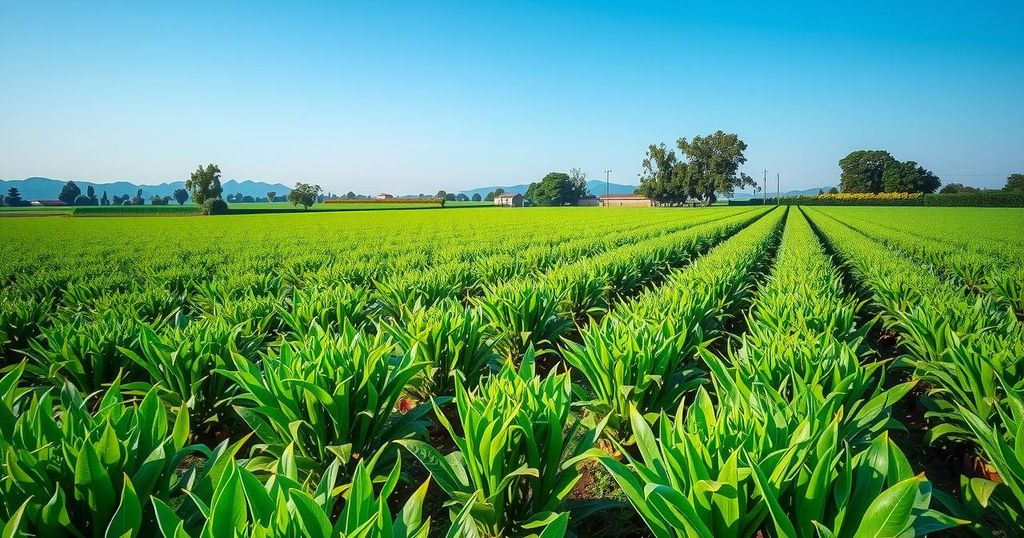Farmers in Madagascar’s vanilla-growing regions are facing severe challenges due to climate change and poverty. Despite experiencing extreme weather and health issues, only a small percentage is adapting their farming practices. The study highlights the need for financial support and innovative farming strategies to ensure food security and resilience among these vulnerable populations.
In Madagascar’s vanilla-growing regions, farmers are grappling with the dual challenges of climate change and poverty. A recent study indicates that nearly all local farmers are experiencing unfavorable shifts in temperature and rainfall, complicating their agricultural practices. Although they anticipate worsening conditions, only a small fraction are making adaptations to their farming methodologies, according to interviews conducted in 2023 in two villages located near Marojejy National Park.
Primarily engaged in vanilla cultivation and planting crops like rice, bananas, and coffee, the farmers rely on traditional tools and natural water sources. However, they report troubling weather patterns, with about three-quarters noting dried-up water sources and reduced farming hours due to extreme weather. These environmental changes have also led to higher occurrences of pests, contributing to health issues such as malaria and diarrhea among the population.
Despite the pressing challenges, only 20% of those surveyed have adopted adaptive practices, such as improving soil health or altering planting schedules. Tyler Barrett, a Duke Ph.D. student, noted that this percentage is significantly lower than adaptations observed in similar studies of small-holder farmers elsewhere. Individuals with more robust assets, like generators or computers, were more likely to implement changes, highlighting the financial barriers that many face.
The majority of the population in Madagascar lives below the poverty line, making the adoption of alternative farming practices difficult due to increased costs in labor and materials. Senior co-author Randall Kramer emphasized the necessity of supporting vulnerable farmers through targeted programs and policies but lamented the current lack of such initiatives. Meanwhile, suggested adaptations, like integrating fruit trees or fish farming within rice paddies, could enhance both food security and pest management.
Madagascar’s farmers continually confront numerous environmental risks, including cyclones that can devastate crops and infrastructure. During adverse weather conditions, access to markets can be severely hampered, affecting farmers’ ability to sell their produce. Concerningly, elder villagers in the Andringitra area report a complete absence of frost for a decade, reflecting broader climate change trends across the island.
Research demonstrates a 50-year trend of rising temperatures and decreasing rainfall in Madagascar, affecting smallholder farmers who produce approximately one-third of the global food supply. As the research team prepares to broaden their study to include 34 villages, they aim to validate their findings on climate adaption among farmers and assess the ramifications of the adaptive strategies being considered.
Nunn pointed out that climate change necessitates increased flexibility and resourcefulness from farmers, which poses significant risks as their harvest outcomes directly impact their family’s food security. Funding for this study is provided by the NIH-NSF-NIFA Ecology and Evolution of Infectious Disease Program.
The findings of this study underscore the urgent need for support mechanisms for farmers in Madagascar facing climate change challenges. Although many are aware of the impending issues, only a small percentage are actively making necessary adjustments to their farming practices, primarily due to financial constraints. Innovative practices could enhance resilience and food security, but implementation requires supportive policies and resources. As climate change continues to threaten livelihoods, empowering small-scale farmers is vital for their survival and food production globally.
Original Source: today.duke.edu






